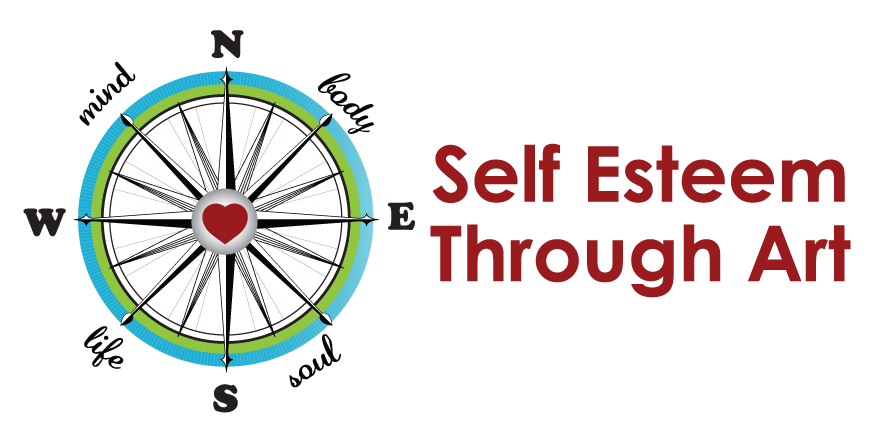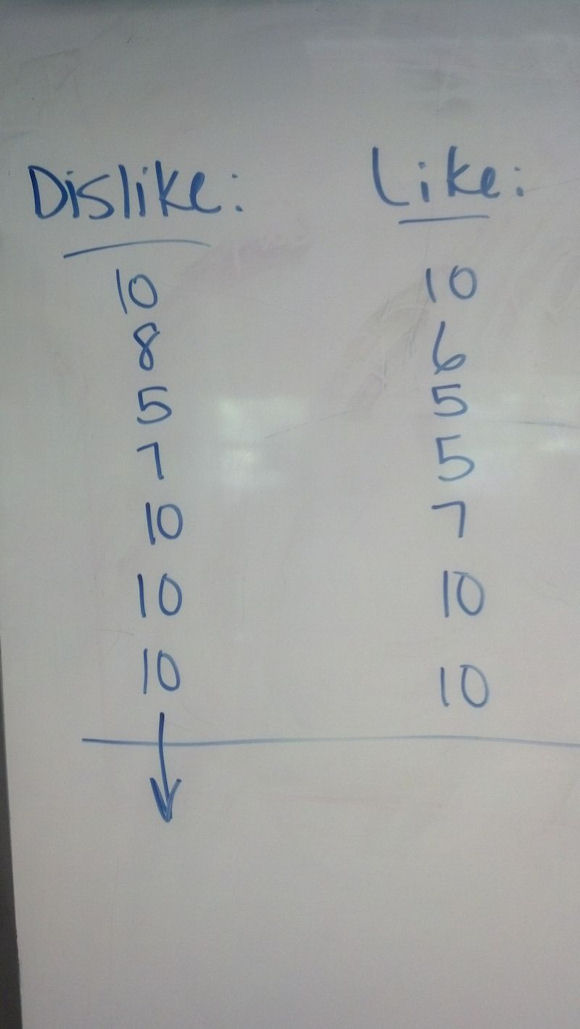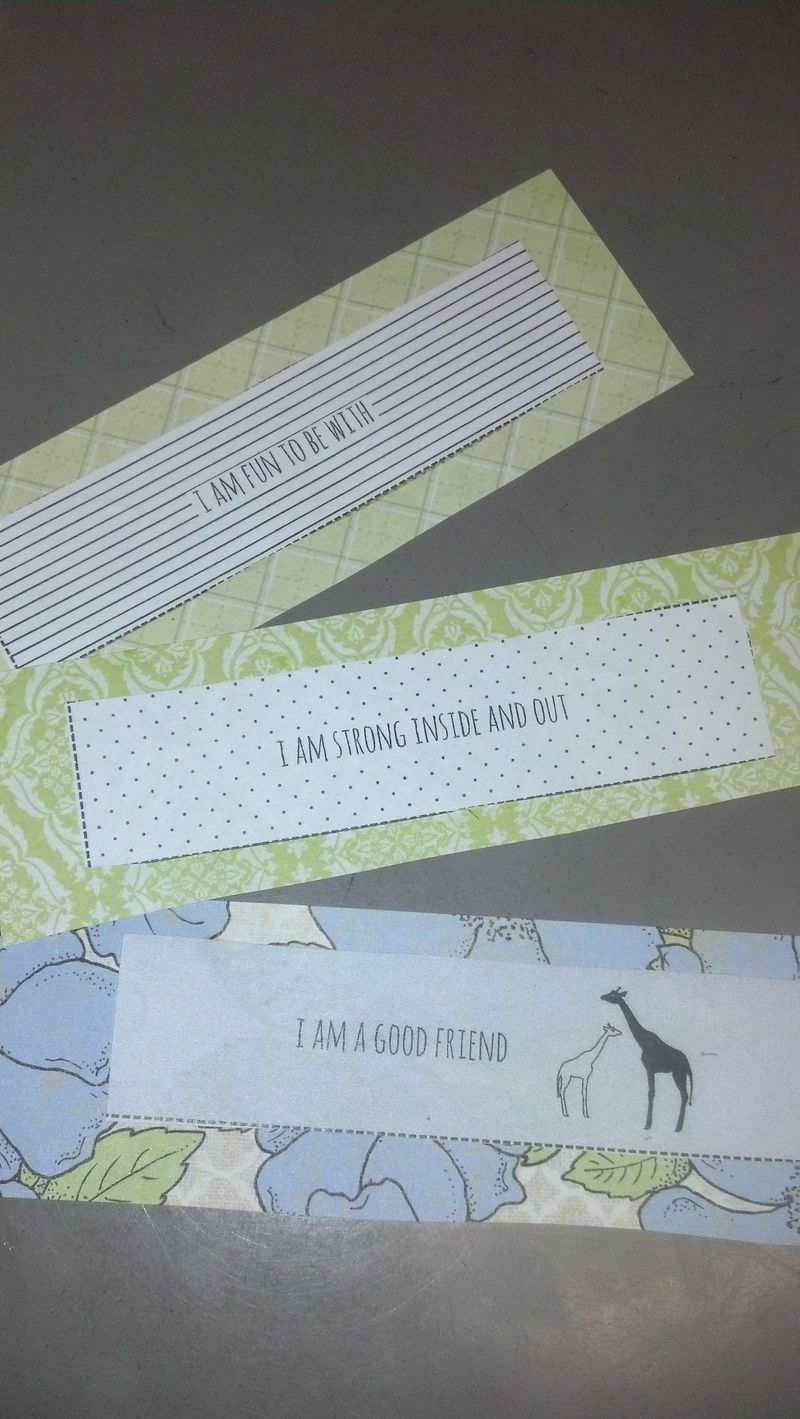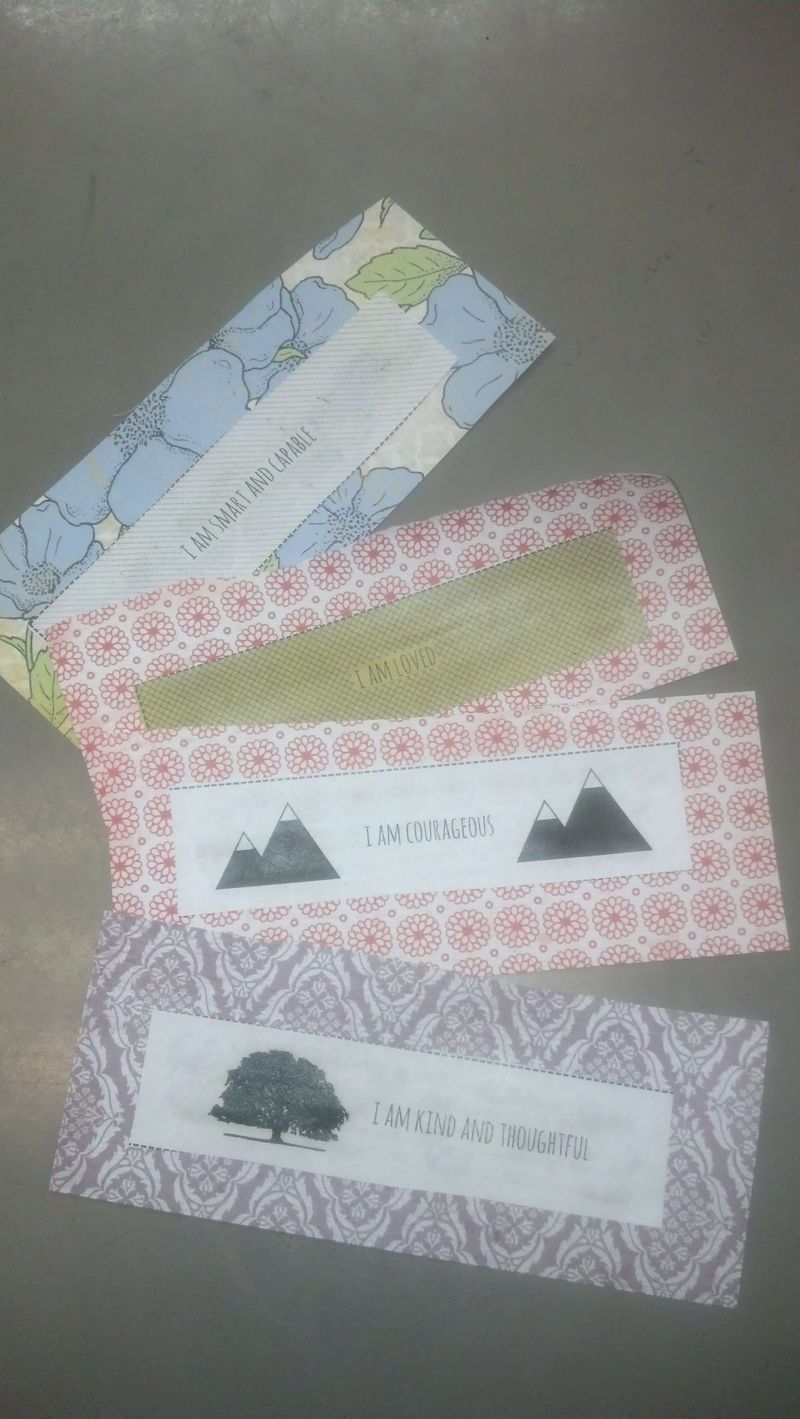Do you know what your kids are saying to themselves when you aren’t listening?
Do you know that the thoughts they think about themselves are tremendously powerful and will shape their future in a positive or a negative way?
I taught at the Benjamin Franklin Classical Charter Public School today. I’ve been teaching a middle school elective course called Artful Affirmations since September 2012. It kind of donned on me today that I should have been blogging about this amazing experience all year long. I’ve posted some updates and class pictures, mainly on the Self Esteem Through Art Facebook page — but haven’t gone really in depth over here on the blog. (total missed opportunity…I will be better next time)
My class is a combination of 6th, 7th, and 8th graders; with this semester being just 6th and 8th graders. The majority of my students this year have been female (males welcome). A range of subjects have been taught and discussed: positive self-talk, goal-setting, bullying, practicing affirmations, the power of words, visualizing, etc. My class is a place where I help these students navigate through the stickiness and the muck of middle school and help them instill some very valuable life skills. I don’t teach the children WHAT to think — I teach them HOW to think. I cannot guarantee that your post-matriculated children will ever use Algebra again, but I can unequivocally guarantee that they will use every single lesson from my class over and over again, with confidence.
We dove into self-talk today. Regardless of how old you are, the “little voices” in our hearts and heads can be approving or cripplingly disapproving. I had the kids pull out their journals and mark two pages with the titles “Things I Do Not Like/Want to Change About Myself” and “Things I Love About Myself.” I asked them to write 10 things in each category and I gave them almost 20 minutes. This was REALLY difficult for the kids, and perhaps not for the reasons you might think. Many of the children weren’t able to finish and struggled to get 10 in each column.
Here is the real skinny:
- Children are not given enough opportunities to truly acknowledge their gifts and many are not even able to identify what those gifts are. We live in a culture where most of their knowledge is rammed down their throats and they are not often given (certainly in an educational environment) the opportunity for self-reflection and introspection.
- Children, by and large, are much more tuned in to what they DISLIKE about themselves than what they LIKE about themselves. This is a programmed, learned response and it can become a debilitating life condition if not monitored. Don’t believe me? Check your child’s social media accounts and text messages.
- Children are often mirror images of their parents. If they see their parents constantly engaging in negative self-talk and limiting beliefs (I am so fat, I hate my job, I look terrible today, I’m so stupid, I could never do that, I’m not good enough, I’m not an artist/athlete/whatever) — guess what?! They will learn that behavior and model it as their own. Be very cautious of the words you use. Someone is always tuning in…
As you can see, many of the children could more easily identify a DISLIKE than a LIKE, and most couldn’t complete the task. The children who DID complete 10 in each column shared that they found the DISLIKE column much easier to fill up and they struggled to get 10 LIKES.
So why is it again that there isn’t room in most curricula for this kind of character/confidence building class + education? Our children desperately need it, and the parents should be advocating for it at every possible opportunity.
I then shared some of my own personal DISLIKES with the students on the board. I come from the school of thought that it’s okay to be vulnerable, to let kids know you are human, and let them know that even adults don’t have all the answers. I had four examples of things I would like to change about myself. I shared how those things make me sometimes feel frustrated and imperfect. I then gave the students the opportunity to help me brainstorm some possible solutions for my challenges, with the goal of getting my DISLIKES into the LIKE column eventually.
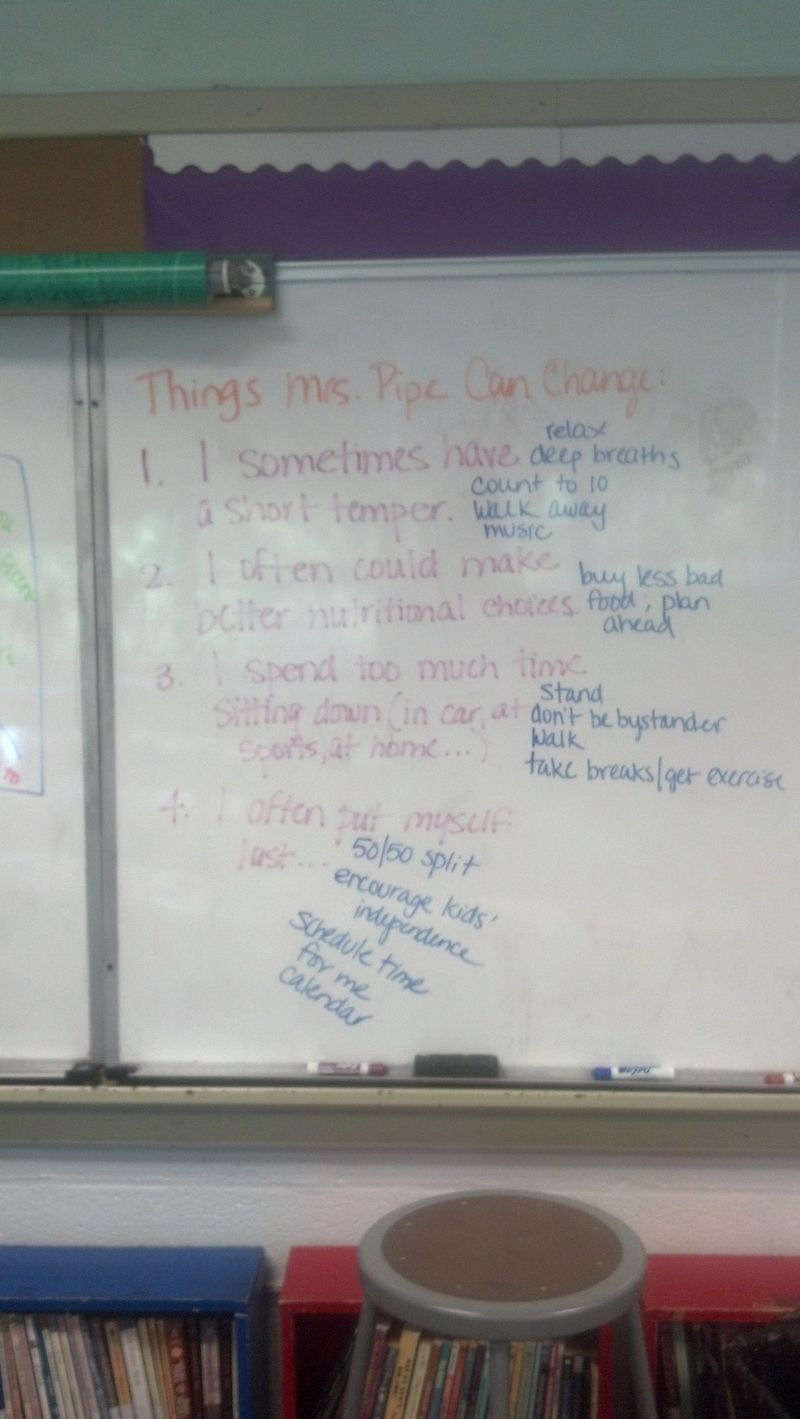
If you notice the title of this, it reads “Things Mrs Pipe Can Change.” This is a VERY important (yet subtle) way to let the kids know that they HAVE THE POWER to change the things they don’t like. They are not stuck. They are not powerless. They are powerful and can be agents of change if they so choose.We ALL possess that power and have the ability to be proactive with our challenges.
Again, teaching them HOW to think…not WHAT to think.
My challenges appear in pink on the board, and their responses are next to those in blue. Their feedback was thoughtful, actionable, and extremely mature – if you ask me! They gave me some awesome suggestions and truly appreciated the opportunity to help me think through the challenges at hand. In doing this, they will be able to APPLY this knowledge to their own problems/challenges. Today, my students gave me the gift of their insight — and I hopefully gave them the gifts of independent thought and adequate problem-solving skills. I will also honor them by incorporating some of their brilliant, common-sense suggestions into my life.
We then moved on to a fun, supporting activity. The kids made these little “positivity plaques” to bring home (I found the template on Playful Learning and printed them out). They picked the phrases that most applied to them (or they could write out their own), found coordinating papers they loved, and then created these little beauties. Now the kids have a handful of favorable messages that they can use as bookmarks or keep by their bedside to read as affirmations both in the morning and at night. These amazing little slips of paper are great for them to have on hand when they are having a yucky day or feeling bad about themselves!
~~~
I firmly believe in filling your children’s buckets and giving them an arsenal of positivity props. Life is tough — I aim to arm them well.
Until next time…thanks for tuning in.
With much love,
Jenn
P.S. All of these tips work for adults as well. So, if you are feeling “stuck” or “funky” or “in a rut” – give them a try!
